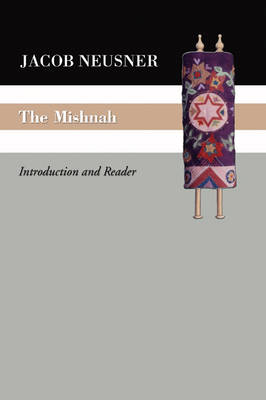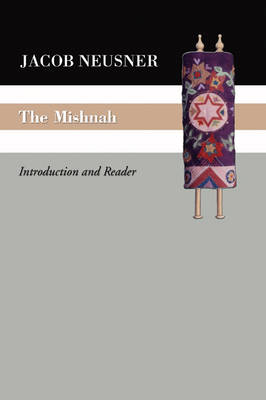
- Afhalen na 1 uur in een winkel met voorraad
- Gratis thuislevering in België vanaf € 30
- Ruim aanbod met 7 miljoen producten
- Afhalen na 1 uur in een winkel met voorraad
- Gratis thuislevering in België vanaf € 30
- Ruim aanbod met 7 miljoen producten
Zoeken
Omschrijving
A leading scholar of the formative age and writings of Judaism here formulates a theory of the Mishnah (one of the earliest dated sources of Judaism): what it is, how it should be read, and why it is of considerable interest in the study of religious conceptions of the social order. Each of the book's chapters are amply illustrated with texts that have been freshly translated by the author. The result is a relatively quick and easy entry into the sometimes difficult and complex world of the Mishnah and its laws concerning agriculture, appointed seasons, women and property, civil and criminal law, conduct of the cult and the Temple, and preservation of cultic purity in the Temple and under certain domestic circumstances, with special reference to the table and the bed. Any valid description of early rabbinic thought - and therefore of early Christianity - must begin with the Mishnah and must focus on the subjects the sages considered important. This book introduces the reader to the world of the Mishnah in a thoughtful, engaging, and spirited manner.
Specificaties
Betrokkenen
- Auteur(s):
- Uitgeverij:
Inhoud
- Aantal bladzijden:
- 238
- Taal:
- Engels
Eigenschappen
- Productcode (EAN):
- 9781592445189
- Verschijningsdatum:
- 30/01/2004
- Uitvoering:
- Paperback
- Formaat:
- Trade paperback (VS)
- Afmetingen:
- 140 mm x 216 mm
- Gewicht:
- 294 g

Alleen bij Standaard Boekhandel
+ 83 punten op je klantenkaart van Standaard Boekhandel
Beoordelingen
We publiceren alleen reviews die voldoen aan de voorwaarden voor reviews. Bekijk onze voorwaarden voor reviews.











